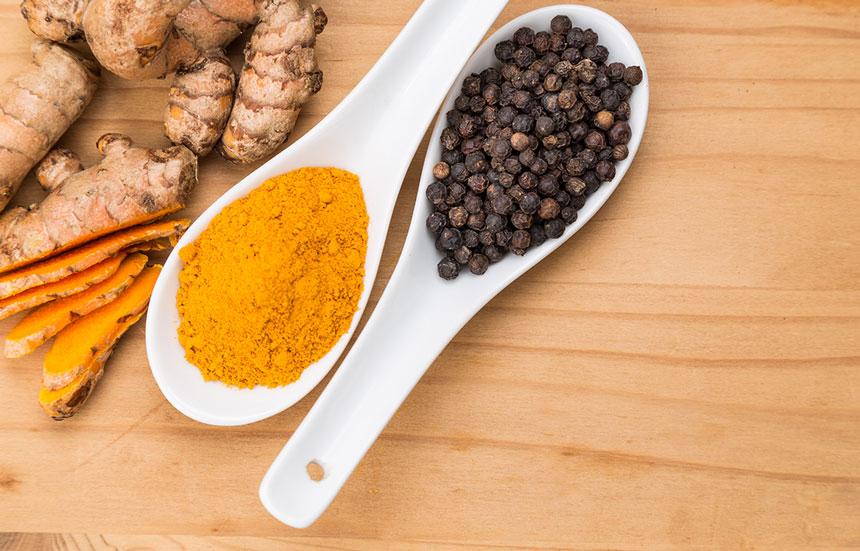Turmeric and Black Pepper Supplements May Damage Liver

People have always turned to herbs and spices as home health remedies. Today, 24 percent of Americans use herbal medicines, supplements and tea to boost their health, according to Statista.
One herb that gained a lot of popularity is turmeric (also known as Indian saffron). Turmeric has been used for centuries to flavor food and as an ingredient in mustard, medicines and cosmetics and as coloring agent in some butters and cheeses.
Turmeric is derived from the root of the Curcuma plant. It has a distinct, brilliant yellow-orange color, which is why it’s nicknamed the golden spice. The bright color is the result of curcumin, a plant pigment (or polyphenol) that’s credited with preventing and controlling various conditions, easing pain, improving memory and slowing aging.
Polyphenols are a class of compounds found in plant foods, primarily fruits and vegetables. Polyphenols help protect your cells from oxidative stress, defined by the Cleveland Clinic as an imbalance of free radicals (an unstable molecule produced during normal cell functions) and antioxidants (a substance that helps protect your body from free radical damage). Oxidative stress can lead to chronic inflammation, raising the risk for heart disease, diabetes, cancer, autoimmune conditions and inflammatory related illnesses.
Curcumin is considered particularly valuable. In addition to its anti-inflammatory and antioxidant benefits, it also has antiviral, anticancer and antibacterial properties.
You can reap some of the benefits of turmeric by adding it to recipes, drinking turmeric tea and using turmeric capsules, fluid extracts and tinctures. However, turmeric absorption is often limited unless it’s combined with bromelain, a group of enzymes found in the stem and fruit of pineapple, or piperine, the active ingredient in black pepper. You can find bromelain-turmeric and turmeric-black pepper capsules in supermarkets, health food and supplement stores and online.
Currently, moderate doses of bromelain and turmeric supplements seem safe for many people, but it’s still important to discuss with them with your doctor before using because they can irritate the stomach, act as a blood thinner, lower blood sugar, interact with medications and cause issues if you’re pregnant or breastfeeding or have gallstones or bile passage obstructions. However, turmeric and black pepper supplements have been found to cause liver injury in some people, according to a handful of studies such as one published in The American Journal of Medicine.
“There’s been an uptick of liver damage that seems to be associated with a rise in the use of turmeric and black pepper supplements,” says Bernard Kaminetsky, MD, medical director, MDVIP.
A research team led by Thomas Jefferson University Hospital, observed an increase in liver cell inflammation and traced it to patients using turmeric and black pepper supplements. Black pepper in supplements increases the amount of curcumin absorbed by the body, potentially as much as 20-fold. The heavy concentration of curcumin affects how the liver processes it, inflaming it.
Adding black pepper to foods cooked with turmeric appears to be a safer approach. While black pepper improves curcumin absorption by up to 2,000 percent, the absorption via food is slower, making it easier for the liver to process.
“Generally, getting nutrients through food is better for your body than supplements,” says Kaminetsky. Nutrient absorption is usually better and it’s easier on your body.”
If you’re taking a black pepper turmeric supplement, call your doctor immediately if you notice:
- Dark colored urine
- Loss of appetite
- Stomach or abdominal pain
- Nausea and/or vomiting
- Unusual fatigue and/or weakness
- Skin and/or eye yellowing
“Keep in mind, it’s best to discuss dietary changes, including taking a supplement, with your doctor before adopting it,” Kaminetsky says.
Don’t have a primary care physician? Consider joining an MDVIP-affiliated practice. MDVIP-affiliated physicians have more time to help you in your pursuit of a healthier lifestyle. Find a physician near you and begin your partnership in health »


